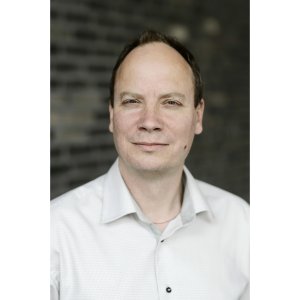Presented By: Center for Russian, East European, and Eurasian Studies
CREES Noon Lecture. Urban Hunters: Hustling and Gathering in Postsocialist Ulaanbaatar
Morten Axel Pedersen, professor of social anthropology, University of Copenhagen

A major preoccupation of post-socialist anthropology has been to criticize modernist assumptions about linear progress and economic development by replacing these with more nuanced ethnographic accounts of social life in diverse post-socialist settings. At the heart of this approach lies a premise about the continuity of social, cultural political and cultural forms. Indeed, the standard anthropological argument goes, social, political and cultural forms never appear ex nihilo, for while traditions, institutions and modes of livelihood change by merging with others and assume new shapes, there are never any clean ruptures with the past, which is always somehow “carried on” into the present. Heeding Joel Robbins’ call to take peoples’ experiences of discontinuity seriously, the aim of this paper is to analyze post-socialist transition as a distinct existential predicament imbued with unique temporal dynamics. More precisely, by chronicling the hopes and the hardships of Ulaanbaatar’s so-called “lost generation” of men and women who turned 30 around the turn of the millennium, the paper explores what happens when post-socialist transition becomes permanent and acquires a logic of its own, across different arenas of economic and religious life. As Mongolia became stuck in what was supposed to have been a temporary economic crisis, “transition” became a way of life. Far from resisting change, people internalized and embodied permanent rupture to such an extent that it almost became second nature to them.
Morten Axel Pedersen is professor of social anthropology at the University of Copenhagen. Since 1995, he has conducted four years of fieldwork in Mongolia, the Russian Far East and in Western China on topics as diverse as shamanism, political cosmology, post-socialism, infrastructure, debt and hope. Most recently, he has conducted research in Denmark on interdisciplinary collaboration and on Protestantism. He is the author of The Ontological Turn: An Anthropological Exposition (Cambridge, 2016, with M. Holbraad), and Not Quite Shamans: Spirit Worlds and Political Lives in Northern Mongolia (Cornell, 2011). His co-edited works include Times of Security: Ethnographies of Fear, Protest and the Future (Routledge, 2013). He is currently completing two co-authored monographs: a comparative ethnography of Chinese resource-extraction projects in Mongolia and Mozambique, and a monograph on Ulaanbaatar’s dispossessed urban youth.
Part of the CREES-sponsored series, Buying and Selling, States and Markets, which focuses on various aspects of economies in Russia, Eastern Europe, and Eurasia. How did socialist regimes theorize money, consumption, wages, and pricing? How did markets during state socialism actually work, and what is their legacy in contemporary times? What are the social roles of commodities and economic transactions today?
Morten Axel Pedersen is professor of social anthropology at the University of Copenhagen. Since 1995, he has conducted four years of fieldwork in Mongolia, the Russian Far East and in Western China on topics as diverse as shamanism, political cosmology, post-socialism, infrastructure, debt and hope. Most recently, he has conducted research in Denmark on interdisciplinary collaboration and on Protestantism. He is the author of The Ontological Turn: An Anthropological Exposition (Cambridge, 2016, with M. Holbraad), and Not Quite Shamans: Spirit Worlds and Political Lives in Northern Mongolia (Cornell, 2011). His co-edited works include Times of Security: Ethnographies of Fear, Protest and the Future (Routledge, 2013). He is currently completing two co-authored monographs: a comparative ethnography of Chinese resource-extraction projects in Mongolia and Mozambique, and a monograph on Ulaanbaatar’s dispossessed urban youth.
Part of the CREES-sponsored series, Buying and Selling, States and Markets, which focuses on various aspects of economies in Russia, Eastern Europe, and Eurasia. How did socialist regimes theorize money, consumption, wages, and pricing? How did markets during state socialism actually work, and what is their legacy in contemporary times? What are the social roles of commodities and economic transactions today?
Explore Similar Events
-
Loading Similar Events...
